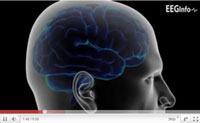Peak Performance
Biofeedback Eases Performance Anxiety!
This article comes thanks to LA Times Blog
Biofeedback technique eases musicians’ anxiety
June 17, 2010 | 7:00 am
If you’ve ever sat down at the piano to play a Mozart sonata and couldn’t find middle C, you know the feeling of performance anxiety. The condition, often called stage fright, is anxiety that is so severe it can impede performance. As many as three-quarters of musicians have musical performance anxiety. Thus, for serious students, learning to master this condition may be as important as learning all the scales.
A new study shows that a specific biofeedback technique is highly effective in decreasing stage fright. Researchers studied 14 college-age musicians. The musicians’ tendency to have stage fright was estimated in a performance before an audience at the start of the study (with questionnaires and heart rate measurements). Half of the musicians repeated the performance four weeks later. The other half received training in biofeedback that was designed to teach them how to control their heart rate through thoughts and emotions. These students also performed again after four weeks.
The study showed a 71% decrease in performance anxiety in the biofeedback group compared with the control group. The biofeedback group had a 62% improvement in performance. The musicians in the biofeedback group also said they had an overall increased sense of calmness, slept better, were more relaxed and had less anger in their everyday lives.
Biofeedback helps coordinate the brain-heart-body processes, the authors wrote. This synchronicity defeats performance anxiety and gives musicians a feeling of “flow,” the authors said, which they defined as “when a person is functioning at peak capacity, including mind, body and energy.”
The study appears in the current [June 2010] issue of Biofeedback, published by the Assn. for Applied Psychophysiology and Biofeedback.

